Data Leaders: Curating the data journey for your business users
Data leaders play a critical role in ensuring that data is accessible, secure, and trusted. By carefully considering the various exploration options available, they can create a curated experience that empowers users to uncover insights while maintaining control and governance. Zing offers a full spectrum of role based data access and exploration options for users.
Structured to unstructured exploration options

Saved Questions and Dashboards (1 + 2)
- Benefits: Provides a pre-defined, guided experience for users who may not be as familiar with data exploration.
- Governance: Ensures that users are accessing only approved questions and dashboards
- Use Cases: For a simple, one click access to curated questions across multiple data sources.
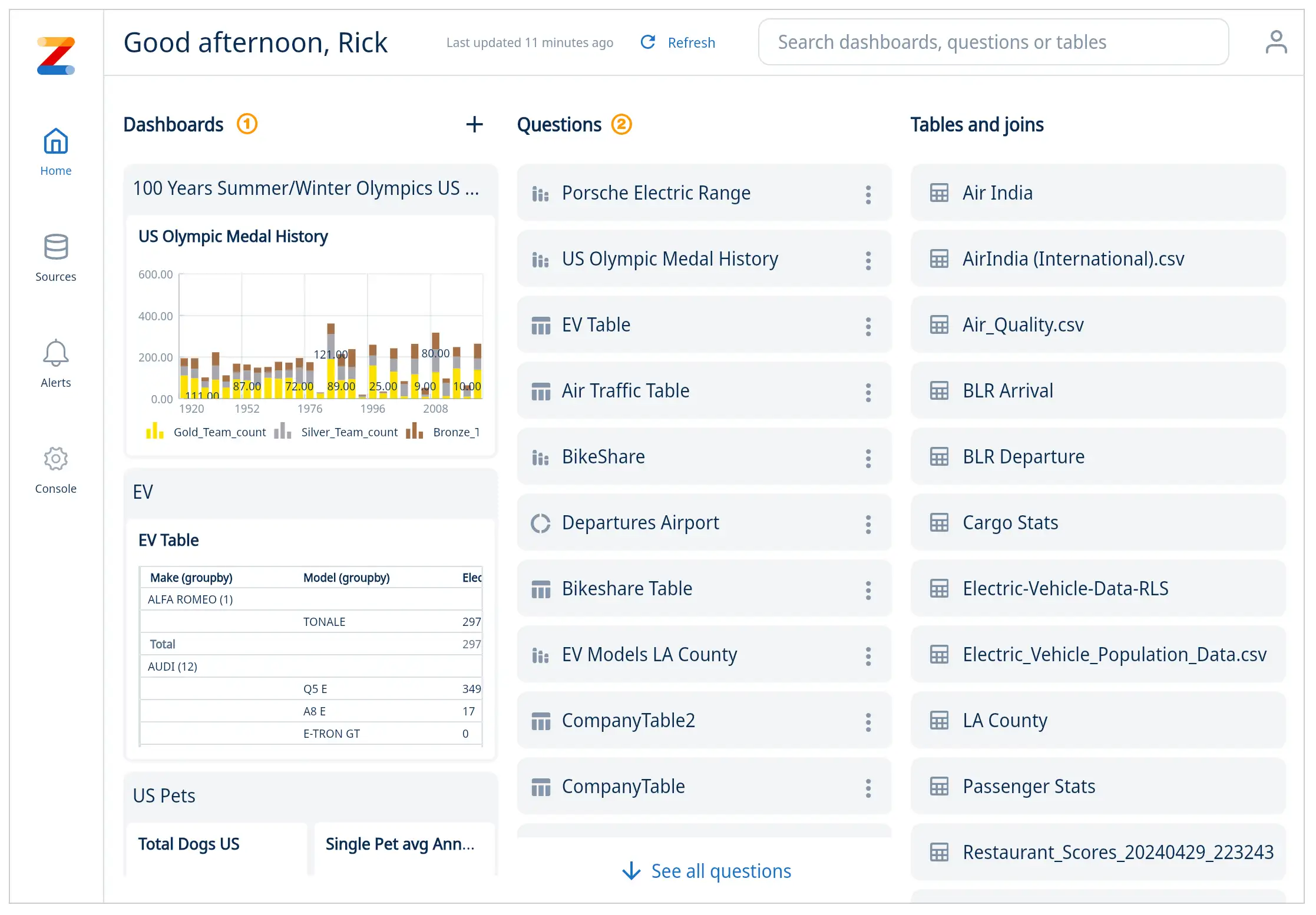
Guided analysis (3)
- Benefits: Trusted, structured analysis path with the full power of SQL and even CTEs and subqueries.
- Governance: A guided analysis allows an admin to predefine fields, whether required or optional, that a user must complete in order to run an analysis.
- Use Cases: Flexible, but guided to keep user in an approved workflow and results. This can live alongside ad-hoc and flexible analysis in Zing.
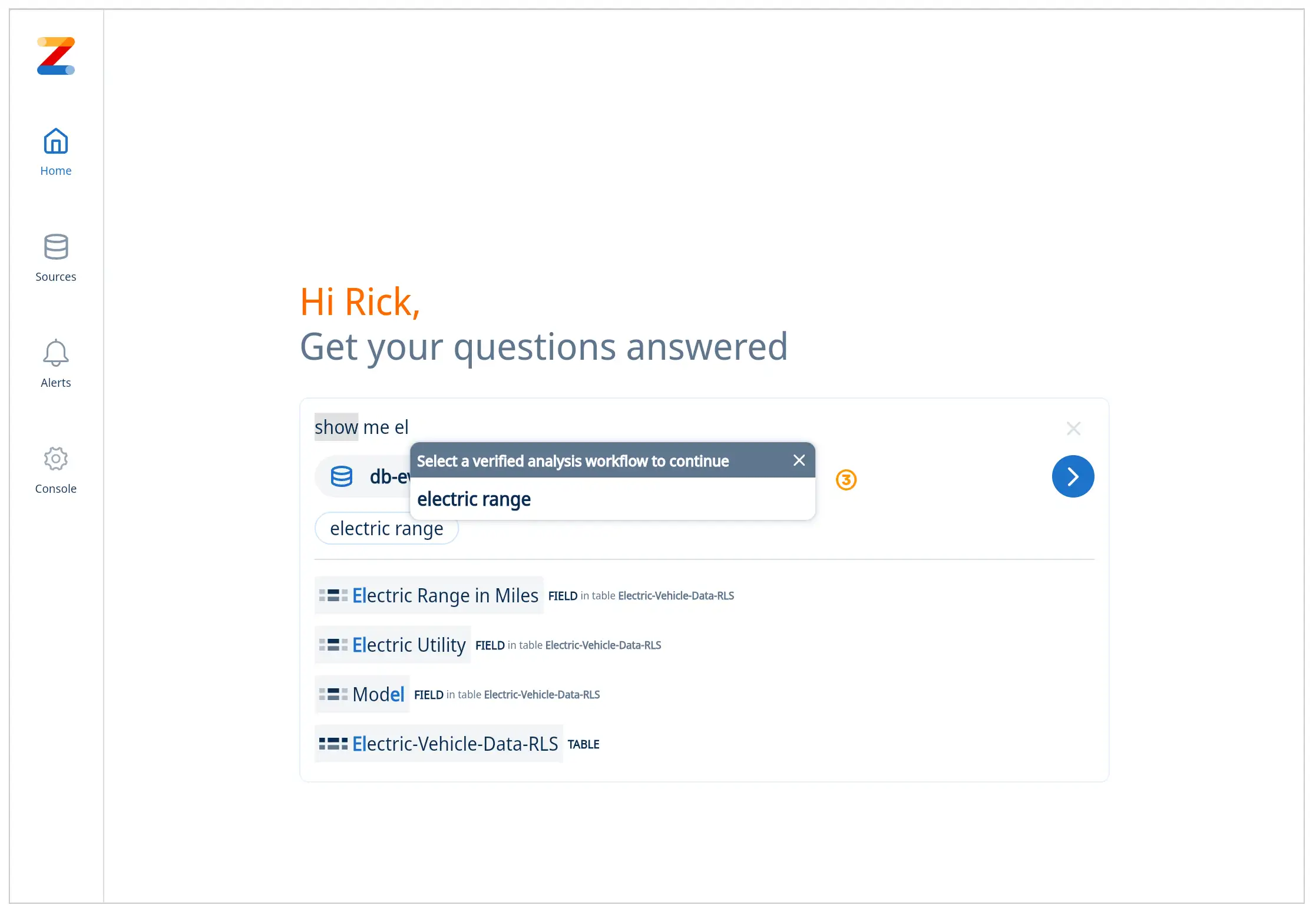
Visual / NLQ Querying (4 + 5)
- Benefits: Allows users to explore data using natural language, AI and a visual drag and drop interface to generate new insights
- Governance: Less restricted and structured, giving user the freedom to explore data and build custom data visualization
- Use Cases: Exploratory analysis, data discovery, and creating visualizations.
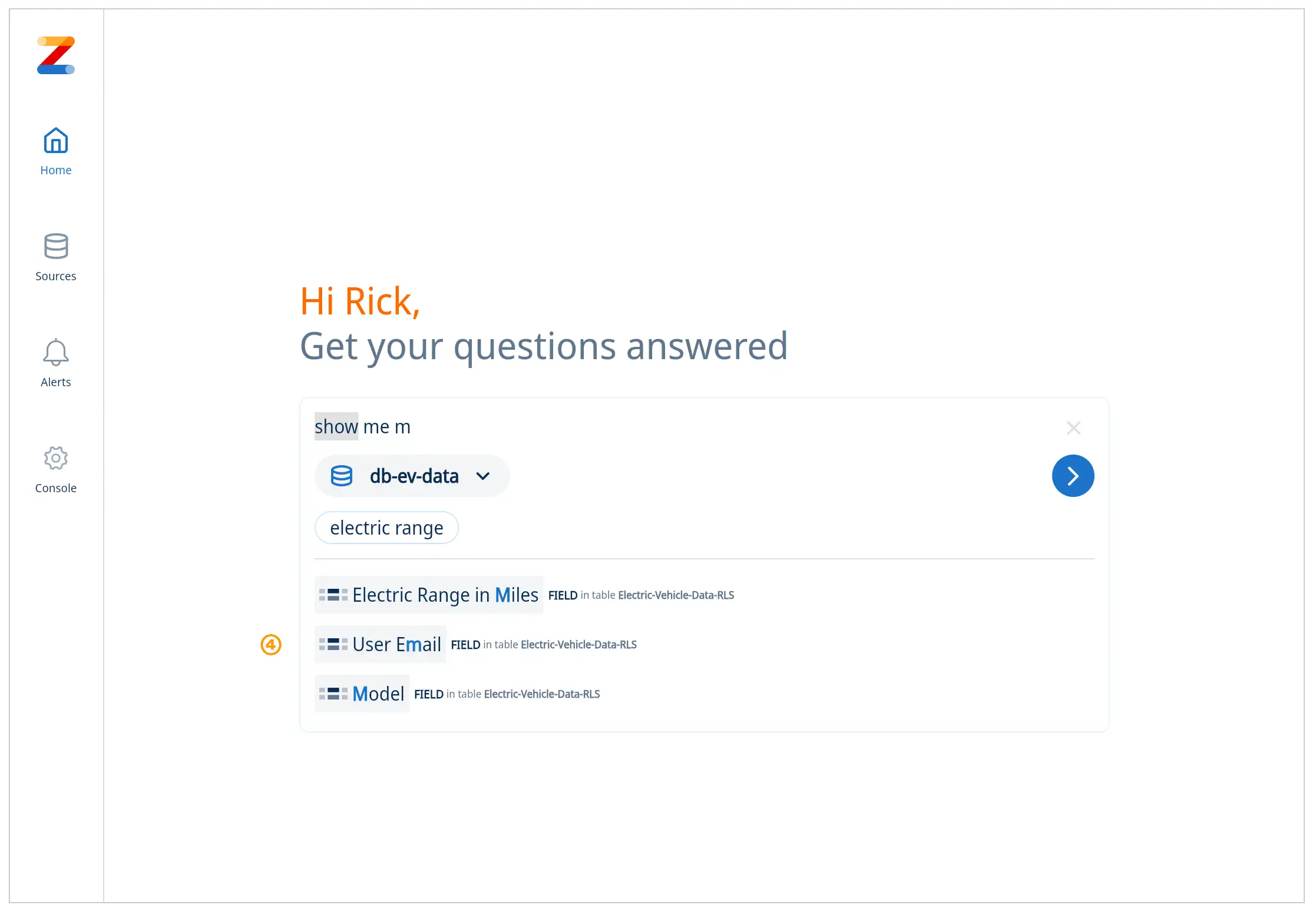
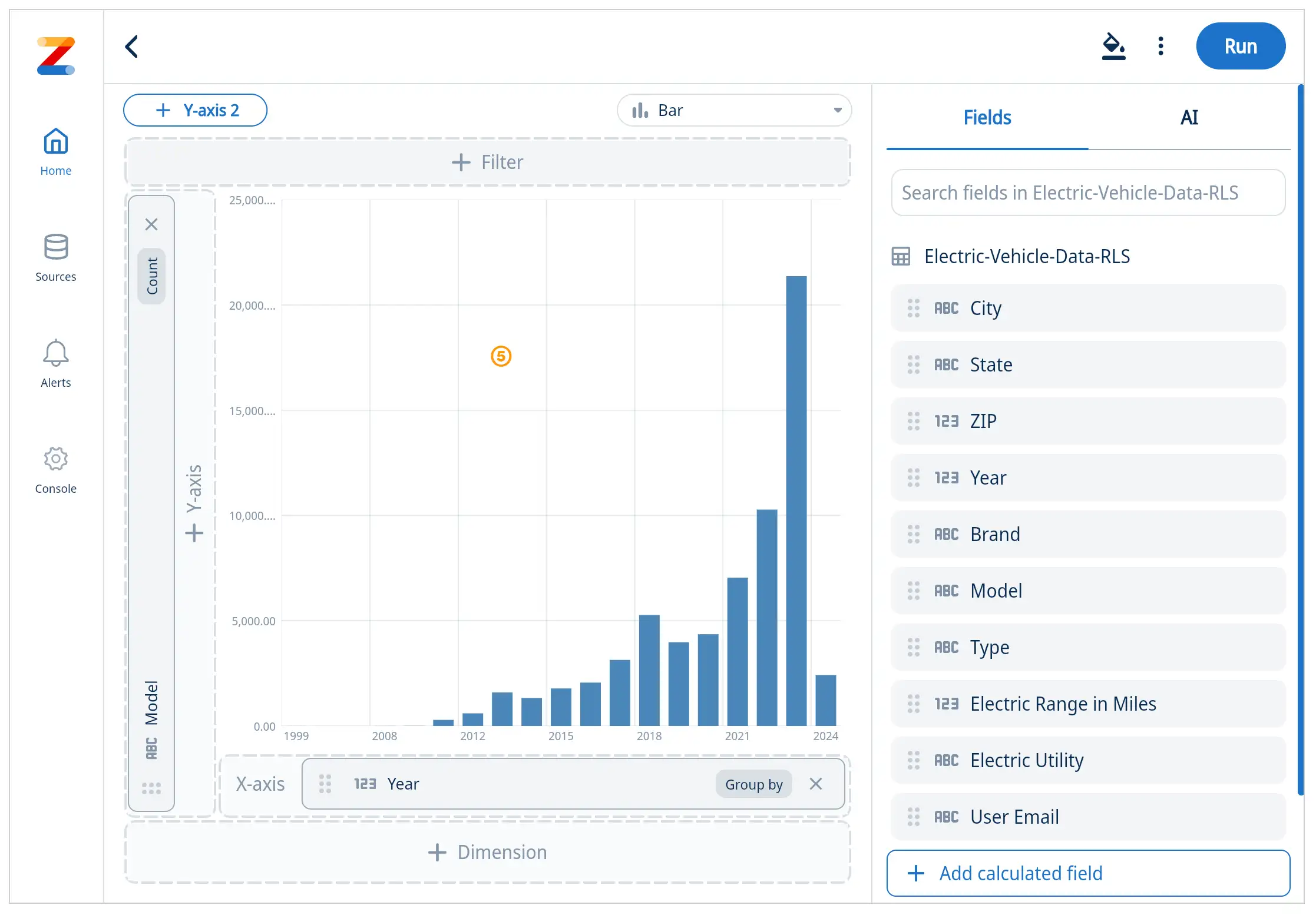
Custom SQL Querying (6)
- Benefits: Offers maximum flexibility for users who have a deep understanding of SQL and want to perform complex data analysis.
- Governance: Requires thoughtful access control, limit to user with technical experience
- Use Cases: Advanced data analysis, research, and development.
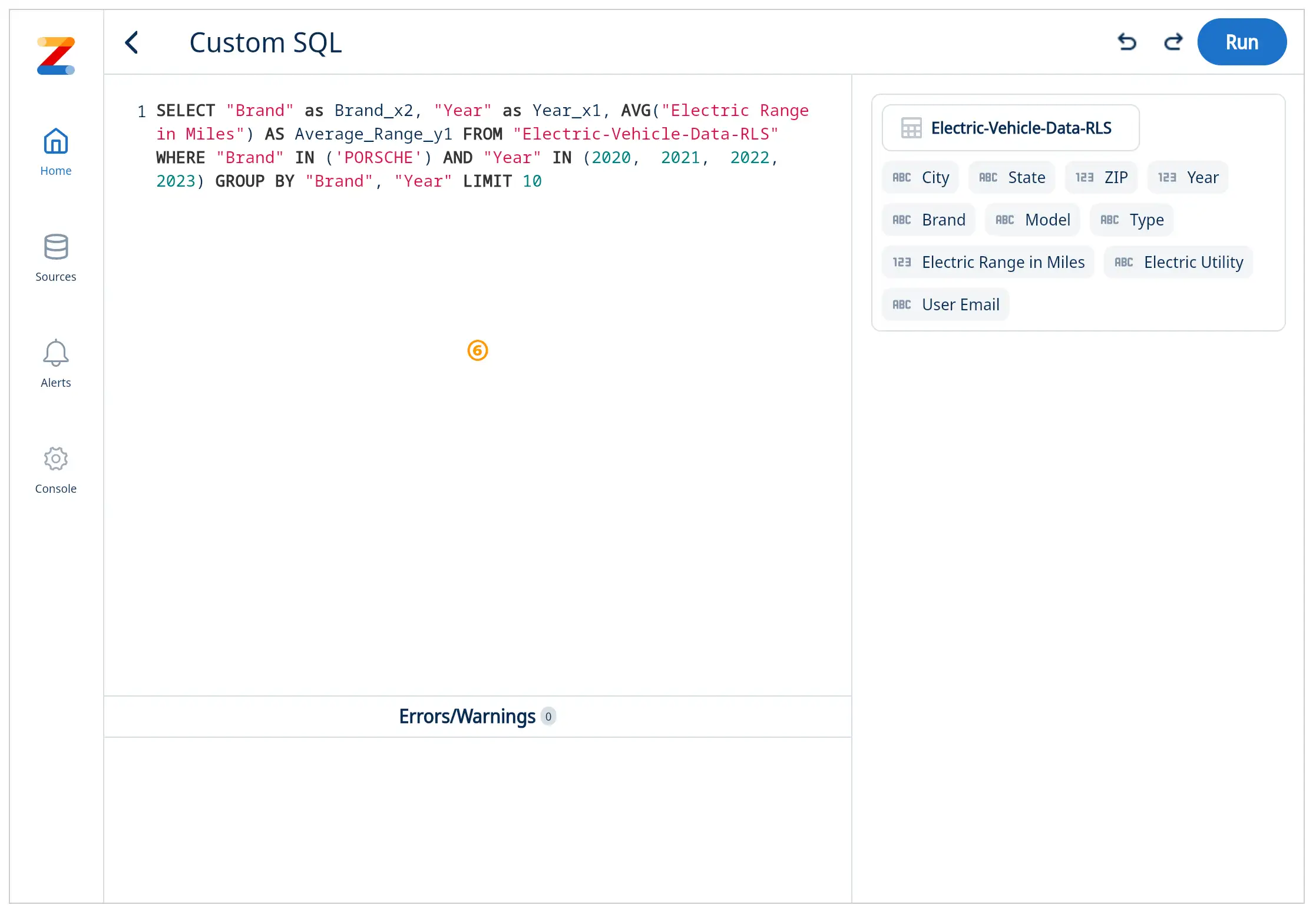
Balancing Flexibility and Control
To effectively manage data exploration while maintaining trust and security, data leaders should consider the following:
- User Roles and Permissions: Implement a robust role-based access control (RBAC) to ensure that users have appropriate permissions based on their job functions and responsibilities. For example, assign a ‘View’ role to allow a user to see guided analyses or saved questions without the ability to ask new questions. Alternatively, a ‘Member’ role can be given to users who can ask new questions but cannot run custom SQL queries.
- Data Governance Policies: Establish clear guidelines for data usage, sharing, and privacy to protect sensitive information.
- Data Quality Monitoring: Regularly assess data quality to ensure that analysis is based on accurate and reliable data.
Explore our Docs to learn more:
- Saved questions
- Saved dashboards
- Guided analysis
- NLQ + examples
- NLQ + visual querying
- Custom SQL
Get started for free! Sign In or create a new account.





